Each year, our training and outreach staff help provide hands-on training at Arctic research conferences and in dedicated training sessions targeting early-career and under-represented populations. Training and outreach focuses on effective means for long-term data management, following a curriculum developed and refined by the open science community. The curricula is open access and is listed below with the past courses.
2025
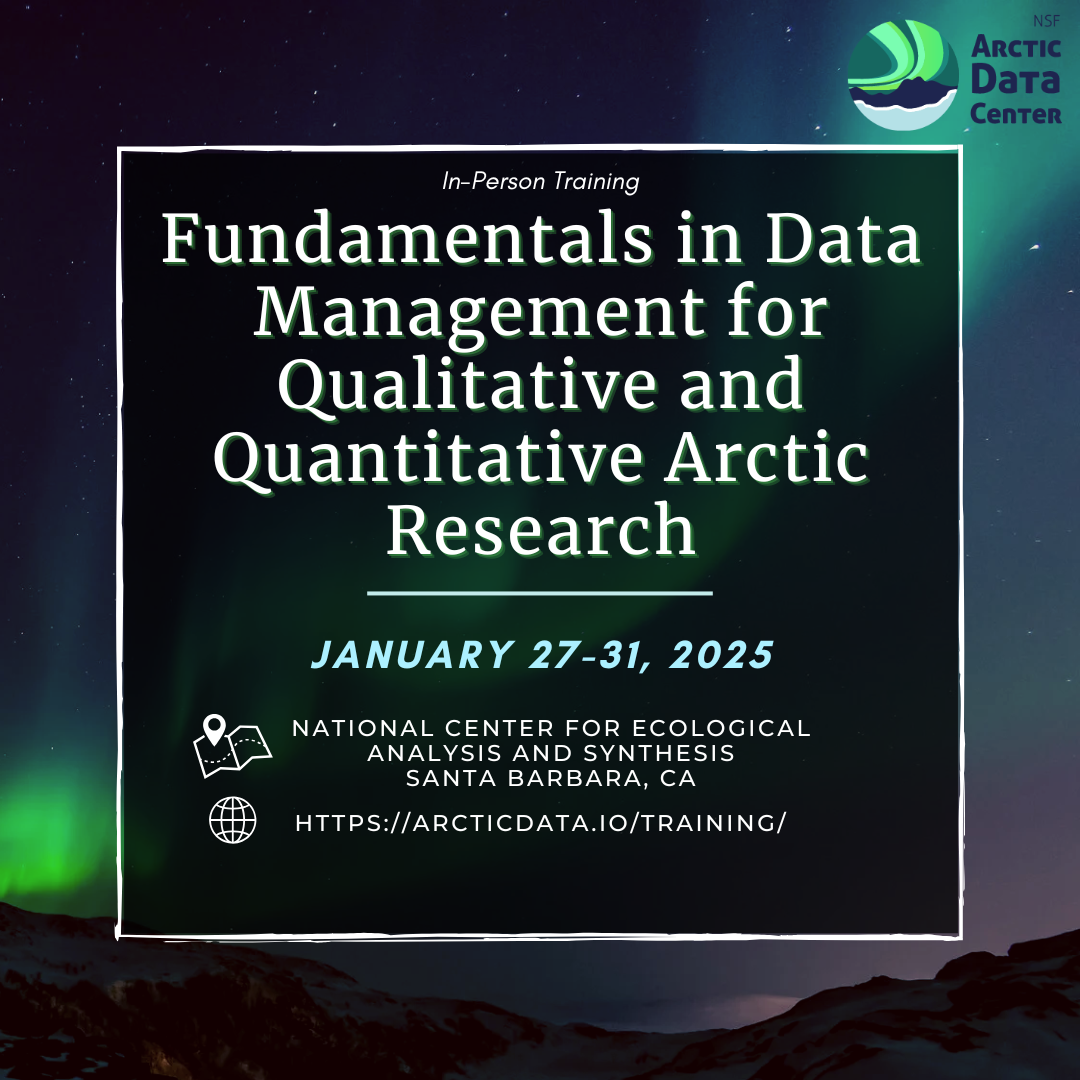
Fundamentals in Data Management for Qualitative and Quantitative Arctic Research
In-person at the National Center for Ecological Analysis and Synthesis in Santa Barbara, CA
January 27 – 31, 2025
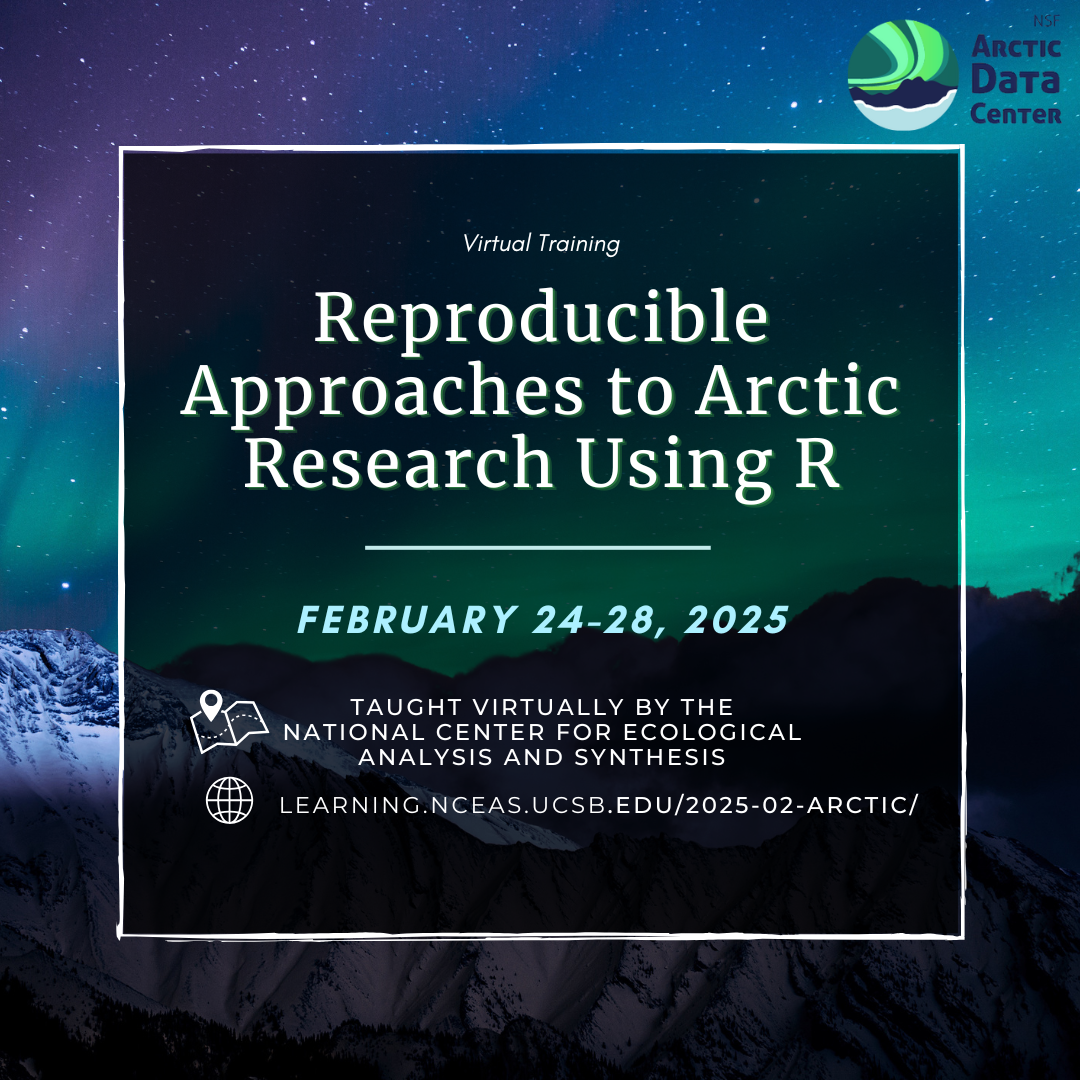
Reproducible Approaches to Arctic Research Using R
Online
February 24 – 28, 2025
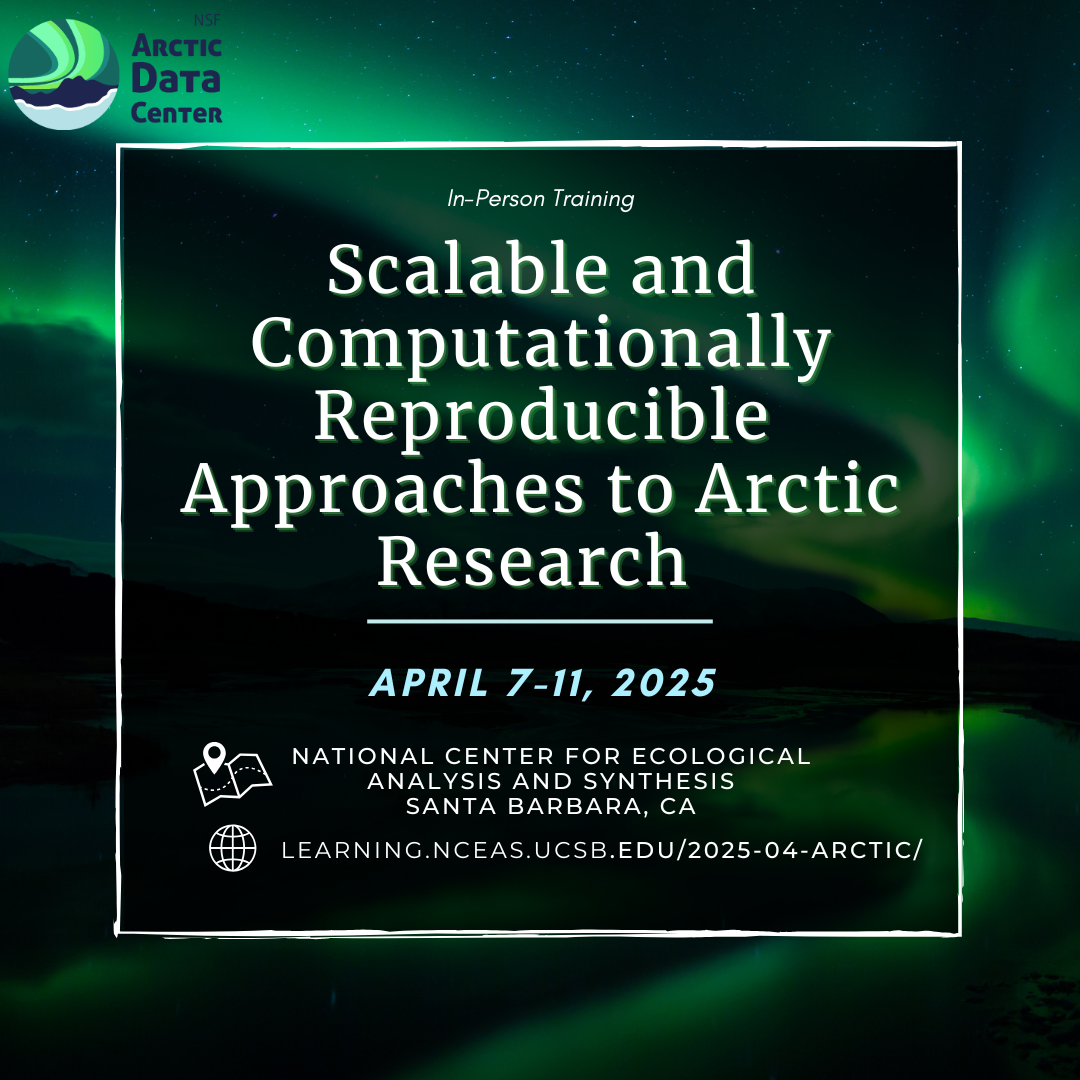
Scalable and Computationally Reproducible Approaches to Arctic Research
In-person at the National Center for Ecological Analysis and Synthesis in Santa Barbara, CA
April 7 – 11, 2025
2024

Scalable and Computationally Reproducible Approaches to Arctic Research
In-person at the National Center for Ecological Analysis and Synthesis in Santa Barbara, CA
March 25 – 29, 2024

Reproducible Approaches to Arctic Research Using R
Online
February 26 – March 1, 2024

Fundamentals in Data Management for Qualitative and Quantitative Arctic Research
In-person at the National Center for Ecological Analysis and Synthesis in Santa Barbara, CA
January 22 – 26, 2024
2023
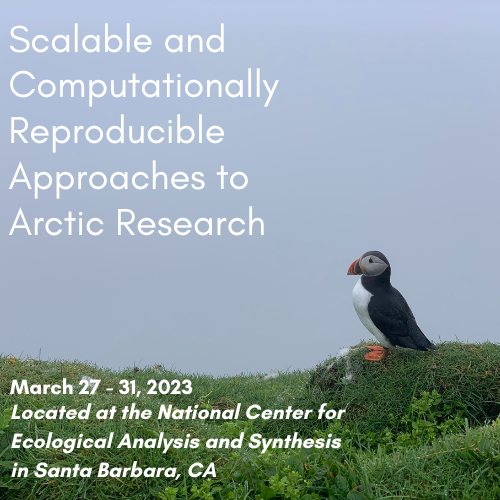
Scalable and Computationally Reproducible Approaches to Arctic Research
In-person at the National Center for Ecological Analysis and Synthesis in Santa Barbara, CA
March 27 – 31, 2023
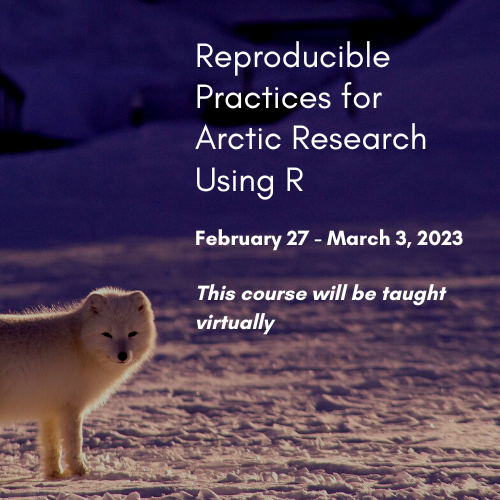
Reproducible Approaches to Arctic Research Using R
Online
February 27 – March 3, 2023
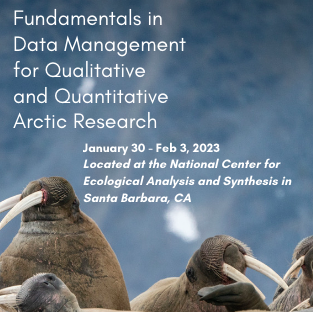
Fundamentals in Data Management for Qualitative and Quantitative Arctic Research
In-person at the National Center for Ecological Analysis and Synthesis in Santa Barbara, CA
January 30 – February 3, 2023
2022
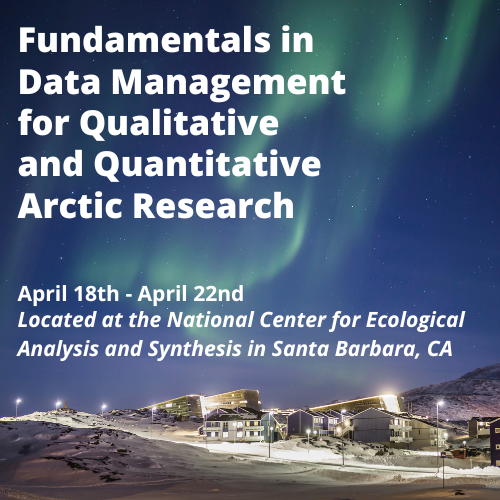
Fundamentals in Data Management for Qualitative and Quantitative Arctic Research
In-person at the National Center for Ecological Analysis and Synthesis in Santa Barbara, CA
April 18 – 22, 2022
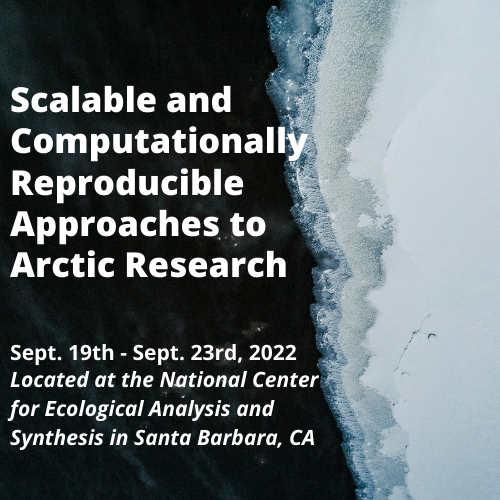
Scalable and Computationally Reproducible Approaches to Arctic Research
In-person at the National Center for Ecological Analysis and Synthesis in Santa Barbara, CA
September 19 – 23, 2022
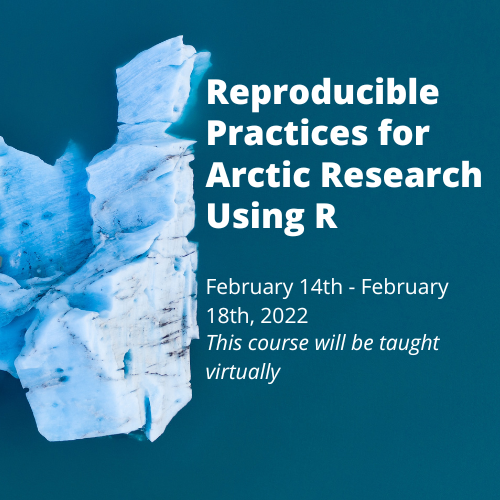
Arctic Data Center Training
Online
February 14 – 18, 2022
Past Talks:
As well as hosting courses and workshops, the Arctic Data Center also holds workshops at various conferences and webinars. A few highlights are listed here.
2024 Interagency Arctic Research Policy Committee CARE-ing for Arctic Data & Indigenous Data Sovereignty Webinar
Virtual
November 4th, 2024
Arctic Data Center Community Engagement and Outreach Coordinators Nicole Greco and Angie Garcia presented on Implementing CARE: Best Practices for Ethical Research and Sensitive Data Documentation at the Arctic Data Center. All content from this webinar can be found here.
2022 Arctic Science Summit Week and the Arctic Observing Summit
Tromso, Norway
March 26th – April 2nd, 2022
In collaboration with ELOKA and NNA Community Office, Noor Johnson (ELOKA), Andy Barrett (NNA), Amber Budden (Arctic Data Center) and Jeanette Clark (Arctic Data Center) presented Open Science: Best Practices, Data Sovereignty and Co-production. All content from this workshop can be found here.
2021 Arctic Science Summit Week
Virtual
March 19th – March 26th, 2021
Chris Beltz, a data fellow of the Arctic Data Center, presented the following talk – Analysis of Arctic Data Center Metadata using FAIR principles shows increased quality across multiple metrics – in session ID:68 – Progress Towards Realizing Data Sharing for the Arctic Region and Beyond (2).
International Congress of Arctic Social Sciences X
Virtual & Arkhangelsk, Russia
June 15th – June 19th, 2021
Erin McLean, Community Engagement and Outreach Coordinator, presented the following talk – Managing sensitive qualitative data from Arctic social science fields.
For questions, contact support@arcticdata.io
